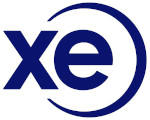To apply for an IRD number you must complete an IRD form and send a copy of your passport (freephone 0800-227 774, www.ird.govt.nz ). IRD numbers are usually issued within five working days.
Recent changes in tax legislation have made tax calculations simpler and more accurate, and tax returns easier to complete. Until recently, everyone who earned an income in New Zealand had to file an income tax return annually with the Commissioner of the Inland Revenue Department. However, under new tax legislation tax returns have been eliminated for individuals who receive income from employment that's subject to PAYE or from interest and dividends subject to Resident Withholding Tax (RWT).
All individuals who derive income that isn’t taxed at the time of payment or who are in business must file an annual return. The return, known as an IR3, is sent to you automatically each year. The New Zealand tax year runs from 1st April to 31st March of the following year, and returns must be filed by 7th July. The IRD then issues a tax assessment (i.e. a tax bill) showing the amount of income tax payable.
Payments for due tax can be made in a variety of ways, including cheque, electronic payment or direct debit from your bank, via cash or cheque at any branch of the Westpac Trust bank, or online through the internet banking facility at any major New Zealand bank.
Personal Tax Summaries
Employees whose income tax is deducted at source by their employer under PAYE and who don’t have any other income, receive a Personal Tax Summary from the IRD based on information provided by employers and shouldn’t have any more income tax to pay. The Personal Tax Summary states your tax code and you should check with the IRD that you’re using the correct one.
You will also receive a Personal Tax Summary if you receive family assistance payments from IRD or from Work and Income and earn over $20,000, have a student loan and qualify for an interest write-off or if you have paid too little or too much tax.
The Personal Tax Summary shows whether you’re entitled to a tax refund or have tax to pay. If you have tax to pay, you must pay it by 7th February for those without a tax agent or by 7th April for those with an agent and a time extension. If you’re entitled to a refund, this will be paid when you’ve confirmed your Personal Tax Summary or within 30 days if the amount owing is less than $200. If you wish to claim certain rebates, such as a child or low income earner rebate, or if you earn under $38,000 but your dividend income was taxed at 33 per cent, you should request a Personal Tax Summary.



